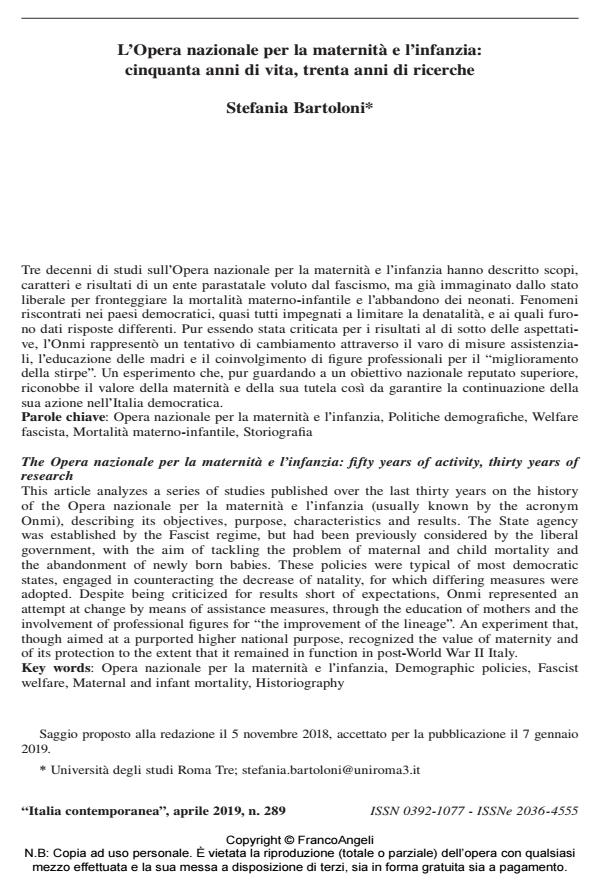The Opera nazionale per la maternità e l’infanzia: fifty years of activity, thirty years of research
Journal title ITALIA CONTEMPORANEA
Author/s Stefania Bartoloni
Publishing Year 2019 Issue 2019/289
Language Italian Pages 19 P. 147-165 File size 150 KB
DOI 10.3280/IC2019-289007
DOI is like a bar code for intellectual property: to have more infomation
click here
Below, you can see the article first page
If you want to buy this article in PDF format, you can do it, following the instructions to buy download credits

FrancoAngeli is member of Publishers International Linking Association, Inc (PILA), a not-for-profit association which run the CrossRef service enabling links to and from online scholarly content.
This article analyzes a series of studies published over the last thirty years on the history of the Opera nazionale per la maternità e l’infanzia (usually known by the acronym Onmi), describing its objectives, purpose, characteristics and results. The State agency was established by the Fascist regime, but had been previously considered by the liberal government, with the aim of tackling the problem of maternal and child mortality and the abandonment of newly born babies. These policies were typical of most democratic states, engaged in counteracting the decrease of natality, for which differing measures were adopted. Despite being criticized for results short of expectations, Onmi represented an attempt at change by means of assistance measures, through the education of mothers and the involvement of professional figures for "the improvement of the lineage". An experiment that, though aimed at a purported higher national purpose, recognized the value of maternity and of its protection to the extent that it remained in function in post-World War II Italy.
Keywords: Opera nazionale per la maternità e l’infanzia, Demographic policies, Fascist welfare, Maternal and infant mortality, Historiography
Stefania Bartoloni, L’Opera nazionale per la maternità e l’infanzia: cinquanta anni di vita, trenta anni di ricerche in "ITALIA CONTEMPORANEA" 289/2019, pp 147-165, DOI: 10.3280/IC2019-289007